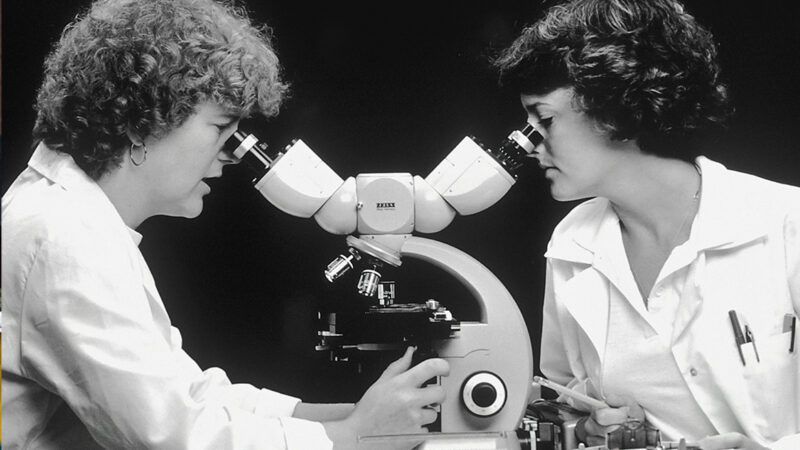FDA Aims To Stifle Medical Innovation Again
After botching COVID test approvals, the Food and Drug Administration wants power over thousands of other tests.

The Food and Drug Administration (FDA) that massively screwed up COVID-19 testing now wants to apply its vast bureaucratic acumen to all other laboratory developed tests (LDTs). By insisting on its recondite approval procedures, the FDA at the beginning of the pandemic stymied the rollout of COVID-19 tests developed by numerous academic and private laboratories. In contrast, public health authorities in South Korea greenlighted an effective COVID-19 test just one week (and many more in the weeks following) after asking representatives from 20 private medical companies to produce such tests.
LDTs are diagnostic in vitro tests for clinical use that are designed, manufactured, and performed by individual laboratories. They can diagnose illnesses and guide treatments by detecting relevant biomarkers in saliva, blood, or tissues; the tests can identify small molecules, proteins, RNA, DNA, cells, and pathogens. For example, some assess the risks of developing Alzheimer's disease or guide the treatment of breast cancer.
The FDA now wants to regulate these tests as medical devices that must undergo premarket agency vetting before clinicians and patients are allowed to use them. The FDA estimates that between 600 and 2,400 laboratories currently offer as many as 40,000 to 160,000 tests. Overall, some 3.3 billion in vitro tests are administered to patients annually.
Out of billions of tests given, how often do laboratory developed tests appear to cause harm? In its submissions, the FDA justifies this burdensome oversight by citing problematic medical device reports and unconfirmed "allegations" for a grand total of nine and four different tests respectively between 2009 and 2023. The remaining examples cited by the FDA are tests that had actually been submitted to the agency for analysis and were subsequently rejected or revised as recommended.
A 2023 study in the American Journal of Clinical Pathology analyzed how frequently these tests were deployed in the University of Utah health system. The researchers reported that out of the more than 3 million lab tests ordered in 2021, 94 percent of them had already been approved by the FDA. Only 4 percent of the lab tests were LDTs. They believe their figures are similar across the U.S. health care landscape.
The FDA has received strong and widespread pushback from laboratories and clinicians. In a letter to the agency, American Hospital Association Executive Vice President Stacey Hughes wrote of the proposed regulations that "the unfortunate outcome likely would be the decline in the rate of clinical innovation, which would negatively impact the U.S.' ability to keep our health care system at the forefront of discovery, provide quality care to patients, and respond quickly to emerging public health risks."
The Biden administration is aiming to have the regulations finalized in April. However, MedTech Dive reports, analysts at the investment bank TD Cowen suggested that it remains "unclear if and when FDA will finalize the rule as it has faced considerable opposition and would likely be challenged in court."
This article originally appeared in print under the headline "FDA To Test More Tests."


Show Comments (16)